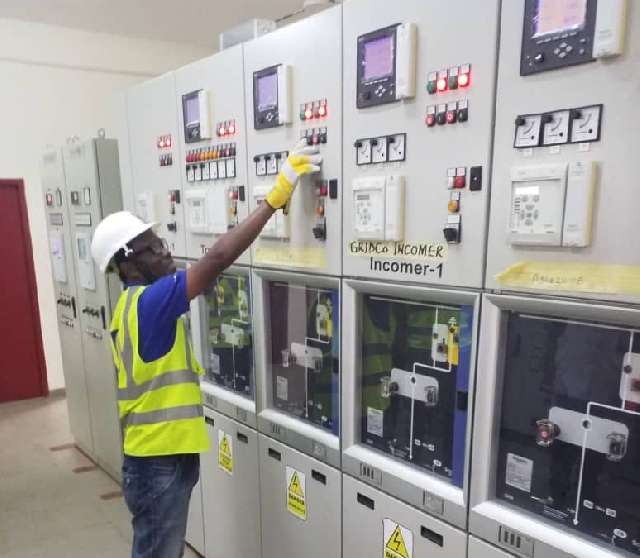The Independent Power Producers (IPPs) in Ghana have issued a warning about the imminent exacerbation of challenges within the country’s power sector, highlighting a potential debt accumulation of around USD$1.8 billion to IPPs by the end of 2024.
This warning comes amidst concerns related to the Power Utility Regulatory Commission’s (PURC) decision to cut electricity tariffs, which IPPs argued will further decrease electricity tariffs, making it even more difficult for them to recover their investments and operational costs.
“The prediction is based on Public Utilities Regulatory Commission’s (PURC) decision to further reduce electricity tariffs by 6.56% amidst escalating variable costs of electricity production such as fuel, maintenance, idle capacity charges, as a result of commissioned generation capacities coming on-grid and off-grid generations.”
IPPs CEO Dr Elikplim Kwabla Apetorgbor
This increase is a result of the Public Utilities Regulatory Commission’s (PURC) recent decision to further lower electricity rates, according to the IPPs.
This action was taken to lessen the burden on consumers at the same time that the variable costs of producing power are increasing. Even though the decision is meant to help consumers, it is expected to put further financial pressure on Independent Power Producers, which could result in a large rise in sector debt.
The situation is further complicated by the energy sector’s significant debt, which has been accumulating due to financial shortfalls from power pricing that does not recover full costs, Dr. Elikplim Kwabla Apetorgbor noted.
Dr. Elikplim Kwabla Apetorgbor further revealed that the sector is also grappling with long delays in payments, as the government pays for subsidies from the national budget. This debt, coupled with the high cost of power in Ghana, poses a significant barrier to the country’s economic development.
Dr. Elikplim Kwabla Apetorgbor, CEO of IPPs, voiced worries about the disparity between production costs and tariff reductions, pointing to rising variable expenses such as maintenance, fuel, and idle capacity charges.
The CEO of IPPs, Dr. Elikplim Kwabla Apetorgbor, stated, “Natural gas, for example, is currently sold at an average high price of 8.8 US cents/mmscf, with the GHS continuously depreciating, etc. Once more, rising variable costs and other increased cost occurrences force an automatic upward adjustment to the generation tariffs.”
The IPPs added that financial difficulties are made worse by industry inefficiencies, including significant transmission and distribution losses.
The Electricity Company of Ghana’s (ECG) financial stability was severely harmed by similar pricing reductions made by the PURC in 2018, as the IPPs pointed out. As a result, ECG is stuck in a cycle of operational shortcomings and financial ruin.
“This situation mirrors the repercussions of similar tariff actions by the PURC in 2018 by 17.5% and 30% for both residential and non-residential customers, which significantly contributed to the financial gap faced by the Electricity Company of Ghana (ECG). Since then, ECG has never met the revenue requirement of the sector. This has placed an avoidable strain on the ECG’s sustainability, resulting in a cycle of financial insolvency, operational and governance deficiencies.”
IPPs CEO Dr Elikplim Kwabla Apetorgbor
Address the Financial Shortfalls in the Power Sector
To address these financial shortfalls and the repercussions of similar tariff actions, a comprehensive approach is needed, according to the IPPs.
The IPPs suggested that the government and regulators need to carefully consider the impact of tariff reductions on both consumers and producers, ensuring that they are sustainable and do not lead to financial deficits for IPPs or ECG.
Again, they pointed out that measures to reduce operational costs and increase efficiency in the power sector are crucial. This could include investing in smart grid technologies, renewable energy sources, and improving energy conservation practices.
The IPPs reiterated that strategies to increase revenue generation for both ECG and IPPs, such as expanding the market for renewable energy, could help mitigate the financial strain caused by tariff reductions.
The government may need to explore additional support measures for IPPs and ECG, such as grants, tax incentives, or subsidies, to help them recover from the financial challenges posed by tariff reductions, the IPPs revealed.
Addressing the financial shortfalls in the energy sector requires a multifaceted approach that considers both the supply and demand sides, as well as the regulatory and operational aspects of the sector.
READ ALSO: IMANI Publishes Social Media Sentiment Ahead of December Polls



















